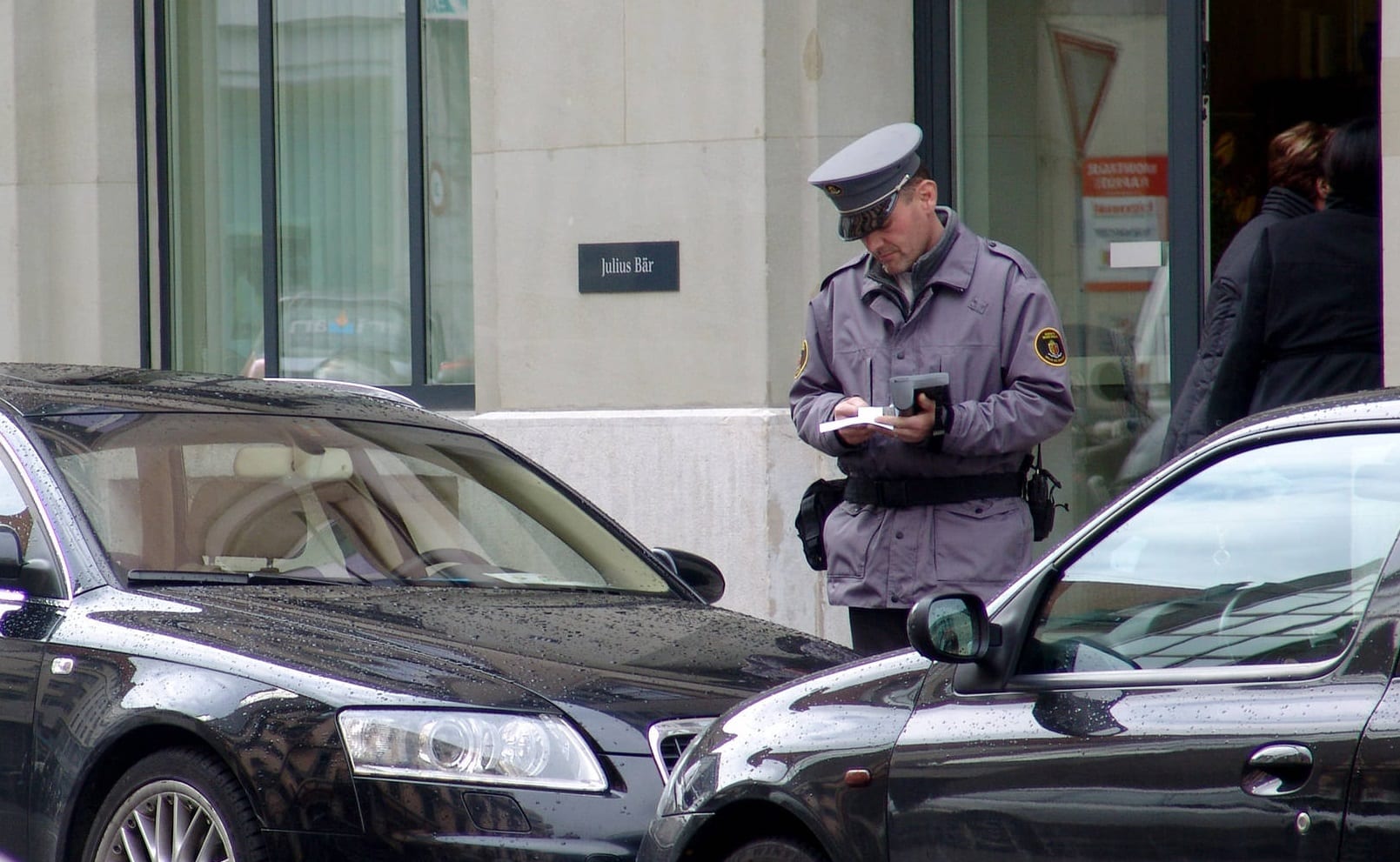Chalk marks as parking enforcement, automobile passenger searches, and warrantless blood draws from unconscious people are among the Fourth Amendment issues in the news this week.
Searching the news last week turned up some compelling questions surrounding Fourth Amendment rights in and around vehicles from the upper Midwest, of all places. In Michigan, it’s no longer considered legal to chalk tires for parking enforcement or search a passenger’s belongings without consent. The Supreme Court, meanwhile, is considering a case against the state of Wisconsin for a most invasive search. Let’s seize the moment and look into what it all means.
After Michigan resident Alison Taylor’s 15th parking ticket in a just few years, she decided something had to give. That “something” wasn’t her parking proclivities, either. Instead, she took the city of Saginaw and parking enforcement officer Tabitha Hoskins to court. Hoskins, who issued all of Taylor’s parking tickets, did so after marking Taylor’s tires with chalk, returning later to see if the car had moved. Saginaw, like many cities across the United States, has used chalk this way for ages, and nobody seemed to give it a second thought.
However, the three judges from the U.S. Court of Appeals for the 6th Circuit agreed, surprisingly, that the chalk marks represent an illegal search. When the chalk is applied, the Court noted, the car is still legally parked and the car’s owner is not suspected of any wrongdoing. Further, the chalk is intended to provide information about the car’s movements. According to the Court, these elements satisfy a test laid out in a 2012 case, United States v. Jones, where an officer installed a GPS device on a suspect’s car in order to collect information about where the car went. The Court, however, has since issued an amended opinion distancing the ruling from any Fourth Amendment implications, and critics and supporters alike acknowledge that an easy substitute for the traditional chalk mark is to simply take a photo of the vehicle in question.
The Michigan Supreme Court ruled unanimously last Monday in People v. Mead that passengers may challenge a police search of their personal property, even if the driver of the car consents to the search. While the Court noted that a passenger doesn’t have the legitimate expectation of privacy while traveling in someone else’s car, they can, in fact, expect the privacy of their effects (in this case, a backpack) to be respected. Larry Mead was riding in a stranger’s car that was pulled over for expired plates. The driver consented to a search, but when Mead exited the car, he left his backpack inside. The officer found methamphetamine and other drugs inside the bag and arrested Mead, but Mead had not consented to the search of his backpack. The Court ruled this to be a violation of Mead’s Fourth Amendment rights.

Arguments continued last week in a case before the U.S. Supreme Court. Mitchell v. Wisconsin concerns a Wisconsin law that allows police to draw blood from unconscious drunk driving suspects without a warrant. Gerald Mitchell was arrested in 2013 after a neighbor reported Mitchell was drunk and might be suicidal. Police eventually found him outside of his vehicle, on the shore of Lake Michigan, shirtless, unsteady, sandy, and wet. He admitted that he’d been drinking vodka and had parked his minivan because he felt too drunk to continue driving. Police took him to a hospital, where he passed out. A test confirmed that Mitchell’s blood alcohol content was over the legal limit, and he was charged with drunk driving.
The Supreme Court justices seem likely to split along ideological lines on the Mitchell case, with the three liberal justices questioning just how much consent an unconscious person can give, as if “only yes means yes.” The conservative majority, including Brett Kavanaugh, seems inclined to interpret consent to the blood draw as implied by the act of getting behind the wheel in the first place. (Look at the van he was wearing, officer! He was totally asking for it!) A ruling is expected this June.
It’s worth watching to see whether the conservative court will make decisions that favor strong interpretations of Constitutional rights and more personal freedom (a common conservative talking point), or if we inch closer to being a police state (the result that many conservatives would seem, by their actions, to prefer). According to a recent Slate article, “[T]he Roberts Five often trample purportedly conservative judicial principles—respect for states’ rights, textualism, judicial restraint, stare decisis, even originalism—when those principles stand in the way of an outcome they want.” On the other hand, liberal justice Elena Kagan pointed out in the Mitchell case that the Fourth Amendment often protects those who violate the law, but “we don’t usually say: Tough luck. It’s your fault. You’re a criminal.”
Related: Who Are The Masters, Pt 1: Data Searches


Join the conversation!